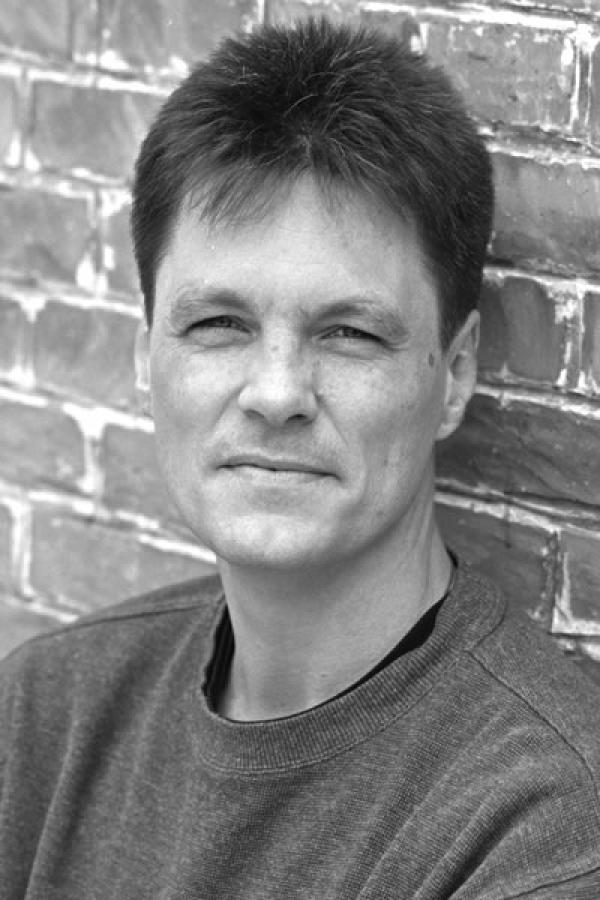Roy Kesey

Photo by Lucy Cavender
Bio
Roy Kesey is the author of three books: the award-winning novella Nothing in the World (Bullfight Media, 2006), a historical guide to the city of Nanjing, and the short story collection All Over (Dzanc Books, 2007),which made The L Magazine's "Best Books of the Decade" list in December 2009. His debut novel Pacazo will be published by Dzanc Books in January 2011. His short stories, essays, and poems have appeared in more than seventy magazines, including McSweeney's, Subtropics, Ninth Letter, Hobart and The Kenyon Review. His work has won numerous awards including the 2008 Missouri Review Editors' Prize in Fiction, and has appeared in several anthologies including Best American Short Stories, The Robert Olen Butler Prize Anthology, and New Sudden Fiction. (www.roykesey.com)
Author's Statement
There's a book I hope to write--a novel I've been thinking about for six years or so now--but it's going to need more in the way of travel and research than I could have afforded on my own. The fellowship will fund those activities directly, and will also help pay bills at home while I'm making my way from Lima to Puno to Copacabana to La Paz, with a bunch of other stops along the way. I'm deeply grateful to the National Endowment for the Arts for making the novel possible.
From the short story "Wait"
Waiting Lounge 19A in Wing D of Terminal 4 is precisely full. The airline personnel smile. The loudspeaker voice says that the flight will begin boarding shortly; the announcement is in English, the woman's accent a mix of Portuguese, Dutch, and Malay.
A Canadian accountant snaps his briefcase shut and stares out at the fog that is settling on the tarmac. The fog is dense and gray and certain. He glances at the passengers seated to either side of him--an old Bulgarian man working a crossword puzzle, an older Honduran woman fast asleep--then at the statue in the center of the lounge, a naked boy holding a cell phone and some sort of globular tropical fruit.
The plane is now invisible, but the smiles of the airline personnel do not wane. The accountant wonders if his futures market holdings back home are headed for contango or backwardation. He shivers, walks from his seat to the windows, presses his fingertips to the pane.
The pilot and crew stride into the lounge, consult with the airline personnel, stride back out. The scheduled boarding time comes and goes. The loudspeaker voice announces that the fog will be lifting momentarily.
The accountant returns to his seat, removes a pad of paper from his briefcase, commences doodling. Children take out coloring books. Other passengers unfold newspapers and magazines. Airline personnel daydream of islands, and speak urgently into handheld radios though this is only for show: the batteries have been on backorder for years.
Aircraft scheduled to land circle invisibly overhead. The fog flares against the glass. The Bulgarian clutches his forehead, and the accountant asks if he needs medical assistance.
– No, thank you.
– You're sure?
– Do I look as though I need it?
– A little.
– Yes. I am attempting to think of something for which the flaring of this fog might be metonymically appropriate.
The Canadian squints.
– I am a poet, says the Bulgarian.
– Ah.
– Yes.
The Bulgarian also squints, then shrugs and returns to his crossword. The televisions buzz and mumble, news about a war that is beginning or ending in a country nearby, not the neighboring country to the west but the next one over. All but one of the children close their coloring books and take out their jacks; a small Mongolian boy takes out his checkerboard instead, and worries that this will make him unlikable.
The accountant pulls a scarf from his carry-on, winds it around his neck. Across the lounge sits a girl from Ghana, and she is unthinkably beautiful; he stares at her until he realizes that she is staring back. He looks down, pretends to find a doodle that needs improving, and the girl from Ghana smiles.
The loudspeaker voice announces that there will be a brief delay as the plane's instruments are recalibrated. The Mongolian boy plays himself to a draw; the airline personnel hand out dense cassava crackers and bright purple tea, assure everyone that it will be only a few minutes more, and the air thickens with discontent.
The fog shifts to the left, and back to the right. The televisions brim and burble about soccer. The poet asks the accountant if he knows the name of the Norse goddess who keeps the Apples of Eternal Youth in a box. The accountant apologizes for not knowing. The poet asks if he knows the capital of Bahrain. Again the accountant says that he is sorry. The poet asks if he knows the smell of kyufte as it fries on the stove; the accountant asks how a smell could be a crossword clue, and the poet says it has nothing to do with the puzzle--he hasn't been back to Bulgaria in forty years, and the smell of kyufte is his favorite childhood memory.
The accountant nods and shakes his head. The poet throws the newspaper in a garbage can and goes to sleep. The accountant turns to the old Honduran woman, now awake. She gums a smile at him. He stares out the window again.

